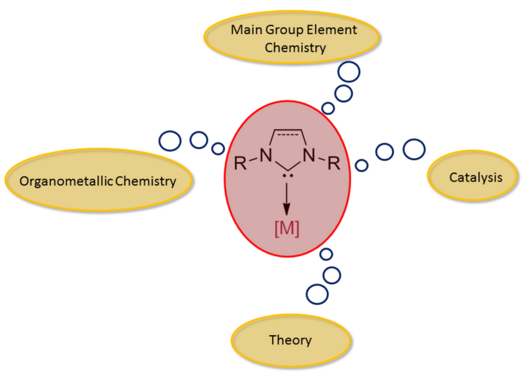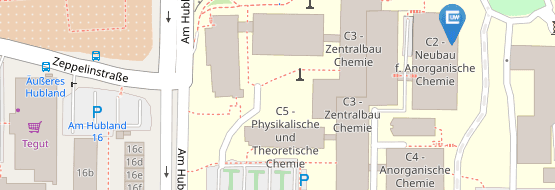Research
Overview
Since their isolation and characterization, applications of N-Heterocyclic Carbenes (NHCs) and related molecules, e.g. Cyclic Alkylamino Carbenes (CAACs) and Acyclic Diamino Carbenes (aDCs), have grown rapidly. We use these molecules in main group element and transition-metal chemistry, especially to stabilize low-valent transition metal complexes and main group element compounds, and as ligands in homogeneous catalysis. NHCs, for example, can be prepared by deprotonation of an acidic proton from an N-heterocyclic system such as a benzimidazolium or an imidazolium ion. The significance of NHCs in organometallic chemistry was originally recognized in 1968, however, no significant interest was given to this field until the isolation of the first free carbene in 1991 by Arduengo et al.. Later on, the importance of these NHCs as strong sigma-donor and weak pi-acceptor ligands in organometallic chemistry, main group element chemistry, and catalysis was evidenced. We use these ligands mainly to stabilize group 8 to 12 transition metals as well as s-block and p-block elements and to investigate the reactivity and properties of these molecules. For their characterization, we routinely use NMR, FTIR, UV-Vis and MS spectroscopies and analytical techniques such as CHN microanalysis and single crystal XRD.

Based on the applicability of NHCs, research in the following four areas is being carried out:

